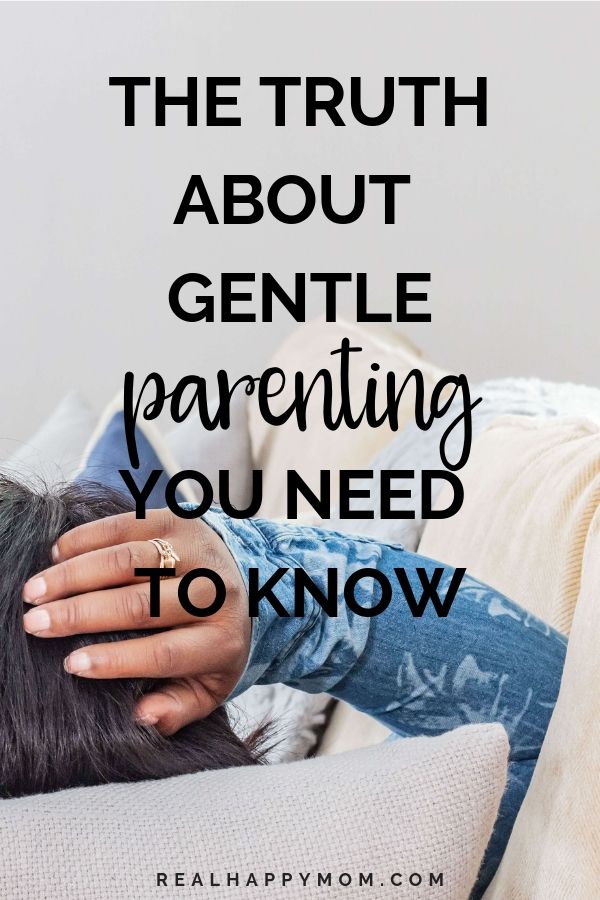Parenting can be harsh. But with gentle parenting, you will find that you and your child are calmer than ever.
Forget the yelling and fussing. Gentle parenting requires a different approach that is effective and less stressful.
So what is gentle parenting? And how do you start implementing gentle parenting?
My guest Amber from Look What Love Made, answers these questions, and so much more. Check out the post below or listen to the podcast audio on the player above.
About Amber
Amber is a mother of two that resides in Maryland.
Before being a stay home mother, Amber was a chef.
When her special needs child required more of her time, she left the food industry and worked with the state.
After having her daughter, Amber made the transition of becoming a stay-at-home mom. Amber still cooks and bakes from home.
She also finds time to work as a lactation consultant traveling to local groups providing support.
This post contains affiliate links. This means that I may receive a commission at no cost to you if you make a purchase.
Why Amber started implementing gentle parenting.
Amber grew up in an authoritative household that had old school values and parenting styles.
Amber admits that her mother was great, but there are some things that she had to work through because of her mother’s parenting style.
Such as not being heard or certain expressions took the wrong way. Amber felt that when she became a mom that she would do things differently.
“And it wasn’t until he got his new therapist at age five that I learned about what gentle parenting was and how it tied into functions of behaviors.”
This was when Amber realized that she had to unlearn what she thought parenting looked like, especially when it came to discipline.
“Those are the types of thoughts I had to unlearn. And it wasn’t until I used to try like the timeout. Try no restrictions and things of that nature. And I was like, why isn’t anything working in my household? You know, these things work. You got punished and moved on because you didn’t want to be punished again. And that’s when kind of like the light bulb went off. You know, every child doesn’t respond to the same discipline, the same type of communication.”
Amber realized that she had to make a change.
“So that’s when I realized that so often as parents we have these children that we love so much and we kind of teeter that line of forgetting they’re their own human being and that the parent-child relationship is a relationship.”
Amber explains that you have to take the time to get to know your child.
Know their temperament. Know what they love and how they want to be enjoyed.
Know when they are about to lose it and throw a tantrum.
Amber learned later that her son had an unspecified anxiety disorder, and she also deals with anxiety. This combination made it even more challenging when it came to parenting.
“So it’s like we were feeding off each other’s anxiety. And you know, him not feeling open enough to come talk to me about things cause he’d worried if I was wanting to be upset and I was just, I wanted to change that dynamic so that we can kind of have a more cohesive relationship.”

What is gentle parenting?
Gentle parenting is when you focus more on the neurological development of the child.
Punishments and rewards are not used. Instead, there is more connection with the child, and choices are given rather than commands.
Gentle parenting focuses more on empathy with a balance of order.
“You implement boundaries. And yes, you may have some disciplinary actions for behaviors that are actually, you know, not uncalled for, but you also focus on the root of behaviors because that kind of gives you more insight on how to correct any improper behavior or how to figure out. To teach your child another way to respond and cope with situations that are giving them a hard time.”

Four functions of behavior
Amber learned through her son’s therapy sessions about the four features of behavior. Understanding the functions of behavior helps you to understand why a behavior is happening.
The four functions of behavior are sensory, escape attention, and access to materials.
Sensory is when the child’s movements or actions make them feel better — for instance, tapping their foot when they get nervous.
Escape happens when the child gets away from an undesirable situation. An example of this is when you ask your child to do something they don’t care for, and they run away.
Attention is a common one. Your child will continue behaviors to get attention. You know — the whining and crying when they don’t get their way.
Access to materials happens when a child does the behavior to get something tangible they desire, like pinching their brother to get the tablet.
Understanding this helped Amber to understand her son’s behaviors at school.
“So with my child, we learned that his root of behavior was attention and escape. As far as attention, you know, just with tying into as an anxiety disorder, he’s a people pleaser. So it didn’t matter if it was negative attention, it didn’t matter if it was positive attention. He wanted people to look at him. So it was like the exaggerated meltdowns. If the answer was no, and if you didn’t want to do anything, he used to elope. Which means he would just dart from wherever we were. He didn’t matter if it was like a public place, you know. He darted at an amusement park before.”
Once Amber started utilizing gentle parenting, she began to have conversations with her son.
She would ask him why he would run away.
He later shared with her that he needed something to do with his feet. When he gets upset, he has to move his feet. So he runs.

Modeling
Amber made sure to model other ways to cope when things weren’t going as planned so that he could see there are different ways to handle your emotions.
“Like as I’m, as I’m driving. If I’m going down the wrong way. I take a wrong turn or if I have to be patient in the grocery line and I would point out these things so he could see how I cope when I’m upset. So he can see, oh well, you know, Mommy made a wrong turn. Like I can’t get upset because, you know, we’re running late to a doctor’s appointment, but you know, no big deal.”
Instead of fussing at her son when he gets adverse reports on his behavior at school, she takes a different approach.
“And we would just talk, we would just talk about things and you know, if he had some incidents, well why did you respond this way? How did that make you feel in this happening? Like asking those questions to try to pick their brains. So they can also realize and remember how they responded to things and to instead of, you know, just reading what’s on the paper and then just kind of like fussing at them or just assuming that you know what happened”
By asking questions, you can hear your child’s side of the story. And also understand their perspective.

Instead of time out try this
Amber quickly learned that time out was an ineffective punishment for her son.
“So I had to figure out what works for him. And what works for him is him having him losing privileges for like screen time or to go outside. So I was like, okay, that’s the thing. So instead of timeouts, there are times when he’s, you know, so emotional that he does need a mindful pause.”
By taking a mindful pause, you can calm down and not act or speak in anger.
Once you and your child have had a moment to calm down, you can talk about how to fix the situation.
“So what we do now is we have a calm down center when he’s upset, he’s very sensory-based. So he, he fidgets a lot. And so I went and bought like some fidget spinners, mason sensory bottles, um, got him a coloring book. I got him a journal and whenever he’s upset he has the ability to choose one or two objects and he is allowed to remove himself.”
You can easily create your calm down center based on what your child enjoys.
“I read a book by Dr MacNamara called Rest Play Grow. So if anyone wants to read that book, it’s really great. She has a lot of, like a lot of great tools on how to implement on the Jensen parenting style. And she talks about how timeouts can be, um, a form of ostracization where you kind of think that you’re telling you think that you’re punishing the child for doing something, but to that child, most likely they’re feeling like you’re, I’ve done this thing wrong. I’ve upset my parents and my family too. Now they don’t want to be around me. Now they want to remove me from the family space. And so I was like, okay, well that’s a different perspective. You know, maybe we could try something else.”
What are the benefits of gentle parenting?
Amber has found that with gentle parenting that she is learning more about her child. And her child is more open to her.
“The child becomes more open to let you know how things are, are going with them, struggles that they’re having because they know that they can come to you and you’re not just going to kind of flip like light switch, you know, you know, my mom’s going to hear me out. You know, she may be upset, but she’s going to help me become a better me in this sense of coping and how I am relating to my peers. So that has drastically improved. You know, his anxiety with school is like diminished. It’s eradicated and he, he’s more open to, you know, owning up to things he’s done to explaining, well, this is why I did this.”
Some of the other benefits of gentle parenting include:
- Happier kids
- Happier parents
- Kids have better regulation of their emotions
- Kids are more empathetic
- Kids have better self-esteem and self-worth
- Kids are less likely to keep secrets from their parents
- Kids are less likely to engage in risky behaviors

What are some of the challenges with gentle parenting?
After listening to Amber, you can tell that gentle parenting takes an unbelievable amount of patience. If you don’t have patience, gentle parenting will be very challenging.
Communication is another significant aspect of gentle parenting. You are not yelling or fussing, but communicating with your child so that you are both heard.
Apologizing and admitting you are wrong to your child is another challenge.
Many times parents feel like they don’t have to apologize to children. But with gentle parenting, you will have to admit you are wrong and tell your child I’m sorry.
“But I am here to guide him to point a and that is the age of 18 and at that time he has to find his way and navigate to point Z on his own. And I think a lot of parents think that they’re supposed to walk side by side until their kid gets to point z. And that’s where a lot of the frustrations come in because their kid is wavering and they’re weaving in between all the alphabet letters and you want them to walk that straight line. And then there’s that power struggle of I want you to do this, I want you to be this, but your kid’s like, no, that’s not who I want it to be.”
You are then dealing with the comments that you are treating your child as your friend.
Because you take time to talk to your child, other parents with different parenting techniques feel that if you are at your child’s level, then you are your child’s friend.
“And I’m like, no, I’m not being their friend. I want them to know that they are their own person and that I hear them. And that there are no other ways to come to the table and figure out how to change things without it leading to a more aggressive approach.”

Another calming mechanism
The way that I got connected with Amber is through her Instagram page. She shares much yoga poses as well as behind the scenes in her daily life.
Amber has been doing yoga for several years and has found it helped her personally.
“Yoga helps me with my own anxiety like my breathing is my main issue. I will, I either have erratic breathing or I hold my breath to the point where I get lightheaded and I had to realize to breathe slowly and fully. That’s how you calm down. That’s how you make less erratic decisions and things of that nature. Like even your breath affects your critical thinking. So I got into that and also gave me something to do like on the physical aspect as the benefit. And so I said, well, maybe this can help Kaiden with his anxiety and you know, this can be a coping mechanism for him.”
Sure enough, Kaiden has been finding yoga beneficial as well. He has found yoga a calming mechanism.
Subscribe & Review in iTunes
Have you subscribed to the Real Happy Mom podcast? If not, I’m encouraging you to do it today.
I don’t want you to miss any upcoming episodes. I am planning on adding some bonus episodes that you won’t find on this website, and if you’re not subscribed, you might miss out on those. Click here to subscribe in iTunes!
I would be so happy and grateful if you left me a review on iTunes too. Reviews help iTunes to know that this is a podcast for other moms so that other moms can find this podcast. Plus, it makes my day to read the reviews. Just click here to review, select “Ratings and Reviews” and “Write a Review” and let me know what your favorite part of the podcast is. Thanks in advance!
Don’t have iTunes? You can subscribe to the podcast Google Podcast, Anchor, Spotify, Breaker, Castbox, Overcast, RadioPublic, and Stitcher.


[…] The Truth About Gentle Parenting You Need to Know […]